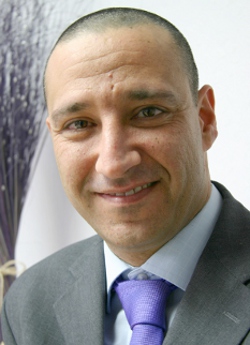Remove fake reviews from TripAdvisor
- Details
- Hits: 14096

How to remove a defamatory fake reviews from TripAdvisor
Fake online reviews on TripAdvisor have the potential to devastate small or family owned restaurants and hotels. Those who are affected by fake TripAdvisor reviews often struggle to find information as to how to remove fake reviews from TripAdvisor.
Remove fake review from TripAdvisor example case study
Is it best to ignore fake TripAdvisor reviews
How to identify a fake TripAdvisor review
What to do if TripAdvisor refuse to remove a fake online review
How to take legal action for fake online reviews
Remove fake review from TripAdvisor example case study
Our client, Gavin (not his real name) purchased a bar and a restaurant in 2015 beside a beautiful costal location in Cornwall, UK. Since the business had been under his proprietorship it underwent a complete rebranding and refurbishment and had consequently gained glowing TripAdvisor reviews, an excellent reputation within the local community, and flourished as a business in terms of its revenue. Gavin and his wife put their entire life savings into the restaurant, which over time had become a popular tourist attraction.
The restaurant continued to trade successfully for several years, but a couple of years ago it started to become the subject of fake negative reviews published on the customer review website, TripAdvisor. The interesting thing about the posting of the fake TripAdvisor online reviews was that they had all been posted at approximately the same time each year, toward the end of the low season when the restaurant had a limited operation, serving the small local community. It meant that just as the high season began, tourists to the resort who checked TripAdvisor for places to visit, would see two or three recent very bad review about the restaurant. This trend continued for several years.
Is it best to ignore fake TripAdvisor reviews
Initially Gavin chose to ignore the fake TripAdvisor reviews and did not think much would come of these defamatory statements. However, much to Gavin’s dismay the fake online reviews began to have a damaging effect on the business. Gavin began to notice a decline in customers, which contrasted to the boom of customers he once welcomed.
On several occasions he was informed by customers that they first considered to not visit his restaurant because of the poor reviews on TripAdvisor but eventually had decided otherwise after all. They all said they were surprised by the ferocity of the reviews on TripAdvisor which did not correspond at all with their actual experience at the restaurant. Gavin was distraught- if these few customers were avoiding the bar and restaurant based on the fake TripAdvisor reviews, surely there were many more who simply wouldn’t turn up.
How to identify a fake TripAdvisor review
Sometimes it would take a little of investigative work to identify fake online reviews on TripAdvisor. The restaurant owners would normally know their place very well so they would naturally be the best people to examine online reviews to evidence of fraud. Upon a closer examination, Gavin began to notice that many of the negative reviews were posted on or around the time of the approach of the peak trading season. This was no coincidence.
It also started to appear that the fake TripAdvisor reviews were being posted by a rival business in the local area and that the rival might have been prompting friends and relatives to post negative reviews, in order to drive away customers from Gavin’s place so that they win the business instead during the busy season through July to August. TripAdvisor is designed so that the most recent reviews are ranked highly on its website listing, so unfortunately for Gavin the fake TripAdvisor reviews were all showing first by default, hence the reason for the precise timing of them being posted.
During its busy trading period, potential customers (whether they were local to the area or visiting tourists) would naturally consult TripAdvisor as to which venues they ought to visit and immediately see the top listed negative reviews and be discouraged from visiting. Restaurants, bars and other local hospitality venues rely heavily on seasonal trade to generate revenue. The fact that someone was deliberately attempting to drive away customers through this period was a dishonest and deliberate attempt to destroy Gavin’s livelihood.
The restaurant meant everything to Gavin, he had put his life savings into its purchase and renovation and envisioned it to be a success. He did not want his life-long dream of owning and operating an eatery by the coast wrecked by several malicious and untrue reviews.
What to do if TripAdvisor refuse to remove a fake online review
Gavin decided to take action and complain to TripAdvisor about the fake reviews in hope and belief that they will be removed from the online review site. Unfortunately, Gavin was met with disappointment as TripAdvisor responded to his requests, stating that the reviews in question did not breach its community guidelines and thereby refused to remove the fake online reviews from its website.
Gavin was deeply devastated and felt entirely hopeless. The fake TripAdvisor reviews were having a detrimental impact on both his business and reputation. He was not prepared to allow this wrongful conduct to continue and therefore opted to seek legal advice. Gavin told us that he found our law firm online and that he was desperate to resolve this matter.
We advised Gavin that as a starting point, it was important to acknowledge that whoever posted the fake online reviews, was committing the wrongdoings Malicious Falsehood and Defamation. Malicious falsehood is a false statement made in bad faith about a business that causes the business harm. Under English law, you can recover special damage and your financial losses if you can prove malicious falsehood.
How to take legal action for fake online reviews
In order to get the fake online reviews removed from TripAdvisor, despite TripAdvisor’s refusal to have the fake reviews removed voluntarily, there was a need to take legal action against TripAdvisor. However, before starting formal legal action, our lawyers wrote a cease and desist letter to TripAdvisor, setting out the facts of the matter. We also requested that TripAdvisor provide disclosure under Norwich Pharmacal order (NPO) as to the identity of the TripAdvisor users who poste the fake online reviews.
Our lawyers were particularly interested in finding out IP addresses and linked mobile telephone numbers of the individuals who posted the fake reviews. We requested TripAdvisor to forward copies of the cease and desist letter to the TripAdvisor users who posted the fake online reviews. This move was intended to place those individuals, whoever they might be, on notice that our law firm, who is known for this type of work, was getting very close to finding out who they really were.
Notifying the posters of a fake online review of the forthcoming legal action had the potential of pre-empting the need for the legal action in the first place, which is exactly what in fact happened. TripAdvisor were prepared to cooperate with our request for disclosure but in the meantime, scores of negative, defamatory reviews had miraculously been deleted from TripAdvisor website.
This was an excellent outcome for a client who was a small business owner and who would have been likely to struggle to afford the cost of a full legal action, even if it meant that at the end of it he would have been likely to win his case. Gavin was a typical client of the firm, an entrepreneur, whose desire is to concentrate his entire focus and attention on serving the pubic, and on adding value.
Needless to say, to this day, Gavin’s restaurant has never experienced similar issues with TripAdvisor reviews.














